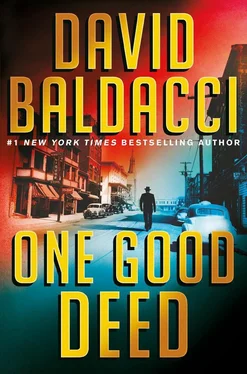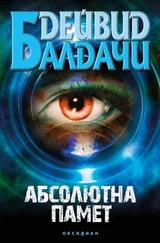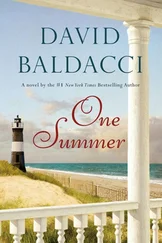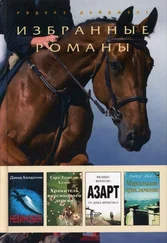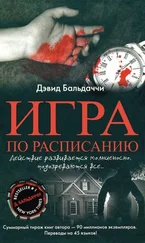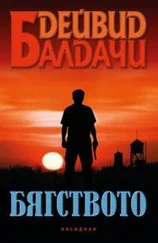Very disturbed by what had just happened, Archer was about to take his leave when the door opened and Ernestine walked in. Her churchgoing clothes were charcoal in color and modest and demure in design. Her hat had a little veil, and her hair was once more done up in a tight bun.
When she saw him, she looked around. “Where is Jackie?”
“She just now went to lie down. How was church?”
“Soothing.” She took her hat off and said, “Would you like some coffee?”
He eyed the bottle of Rebel Yell.
She followed his gaze, smiled resignedly, got two glasses and filled them with a finger each, and handed him one. They sat on the couch and sipped their drinks.
“Is Dickie Dill really dead?”
“Dead as they come. It was a close thing. Little man almost did me in.”
He was surprised to see her lips tremble at this. “I’m so very glad that he did not.”
He flashed her a grin to reverse her anxiety. “Hey, it’s all good.” He glanced in the direction of the bedroom. “Did Jackie talk to you at all?”
“About what?”
“I don’t know. Anything, I guess.”
“She was very frightened. And she was very grateful for what you and Detective Shaw did.”
“Nothing about her father, maybe?”
“No, not about him.”
“Okay. Uh, anything about me in particular?”
“Like what?”
“Just anything.”
“She likes you. She’s comfortable around you. She thinks you’re a good person.”
He nodded, feeling ashamed for trying to pry information from the woman.
“Can I ask you a question, Archer?”
“Shoot.”
“Do you care for Jackie? I mean, do you love her?”
This was not what he had been expecting.
“I’m, uh, well, to tell the truth, I’m not sure what love really is, Ernestine. If it’s feeling good with someone, liking how they look, and wanting to be around that person, then yeah.” He paused, glanced down for a moment, and then decided to say it. “But that could apply just as much to how I feel about you .”
A part of him wanted to keep looking away from her, but a stronger part of Archer compelled him to stare directly at her.
“I see,” she said, eyeing her lap.
“I didn’t mean to put you on the spot.”
“I’m sure you didn’t. And I know that I put you on the spot with my question. But your words were spoken with a great deal of sincerity.”
“So, how do you feel about me?” he said quietly.
She glanced up at him, perhaps sensed the urgency, the necessity of having an answer showing clearly in his features.
“I like being around you too, Archer. Very much. But perhaps not in exactly the same way that you want to be with me.”
He nodded slowly. “Well, a man can’t ask for a straighter answer than that.”
They fell silent for a few moments. Then Archer said, “Jackie wants to meet with her father at her house, tomorrow night. And she wants you to be there with her. I’m sure she’ll talk to you about it, but I wanted to give you a heads-up.”
“What will they be talking about?”
“Lots of things. Some I know, some I don’t have a clue about. But are you okay with that?”
“I am. If that’s what she wants.”
He finished his drink, rose, and fingered his hat, looking nervous.
“Is there something else?” she asked quietly, peering up at him.
“My old man, rest his soul, was a good father. He, uh, he stood up for me a lot when I was a kid. I grew into my height and all later on. So some of the bigger kids would rough me up and such. But my dad was always there.” Archer held up a fist. “He taught me how to fight proper and all.”
“Why are you telling me this?”
“Sometimes my father would go too far, though. He beat up a couple older kids that had knocked me around. Police got called out on him. He almost went to jail, but in the end didn’t. It was bad all around for everybody, and back then I got mad at my old man for doing it. But the thing I came to understand is that he did what he did because he loved me. It really was that simple.”
Perhaps involuntarily, Ernestine glanced in the direction of her bedroom and where the scrapbook lay before her large and now sad eyes came to rest on him once more.
“Do you understand what I mean?” Archer said, his look unsure and anxious.
“I think I understand exactly what you mean, Archer,” she replied.
She looked at him with an expression that Archer couldn’t entirely fathom. It was sort of caught between hope and heartbreak, he supposed.
“Ernestine, you okay?”
“I’m fine, Archer, thank you. I hope everything works out for you.”
“Yeah, me too. Well, good-bye.”
“Good-bye,” she said with something akin to finality, at least in his eyes.
Troubled by this odd impression, he left.
The following afternoon, Archer ventured down to the Rexall drugstore, with the big orange-and-blue sign. Sitting at the counter he smoked a pair of Luckys while he devoured his bologna-and-cheese sandwich with a pickle, and drank down a lukewarm bottle of Coca-Cola. He bought some aspirin from the blue-smocked druggist standing behind the counter and downed a couple pills with the remnants of his soda pop. He idly watched a young, slender woman in geranium red coveralls loading Life and Look magazines into a wire rack next to a shelf of toiletries.
Finished with his meal, Archer ducked into the phone booth adjacent to the lunch counter, looked up the number in a phone book dangling from a chain, then dropped in a nickel and made the necessary call because he didn’t want to surprise a man who answered his door with a shotgun. As he fingered the rotary dial and listened to the familiar clicks and whirls as it spun, he thought about what to say. He decided to make it short and sweet. When the call was answered, it wasn’t Tuttle, it was his secretary, Desiree. The conversation went far more pleasantly than if Tuttle had been on the line.
Later, under a vast, blue sky, Archer pushed the Nash fast as he roared down the road leading to Lucas Tuttle’s. The big, bulky car handled well and had plenty of power, like Shaw’s Buick. Before taking the wheel of the Buick, Archer hadn’t driven a car in years. For obvious reasons, the prison folks had not deemed it sensible to allow convicts to command heavy pieces of equipment.
He felt open and free, and part of him contemplated taking this Nash all the way to California, where he had heard the jobs were plentiful, the weather was always warm, and all the women looked like Rita Hayworth. Then the thought of Irving Shaw with his ribbon of mustache and indefatigable thirst for the truth made Archer ashamed he had even thought of making a run for it. Now he wanted to know the truth as much as the lawman did.
He turned past the leaning mailbox and hurtled down the road, cut to the right, and pulled up in front of the neat house a bit later.
He climbed out and looked around, thinking it had to have been something pretty bad for Jackie to forgo all this to take up with someone like Hank Pittleman. He didn’t care how much money the man had. He had forsaken his wife and chosen a younger woman because Marjorie had the audacity to grow old. Well, Pittleman had gotten old, too. For Archer, who had never taken the plunge, marriage was for life, right or wrong, good or bad. You just didn’t wake up one day and decide enough was enough because your mate had a few more wrinkles or a few more pounds.
Maybe that’s why I never got hitched. Maybe I’m afraid I can’t live up to the vows.
He put on his hat, angled it just so, and headed to the front door.
Rapping twice, he expected to see the door open and the Remington over-under appear in his field of vision. He braced himself for that in fact, but it wasn’t necessary.
Читать дальше
